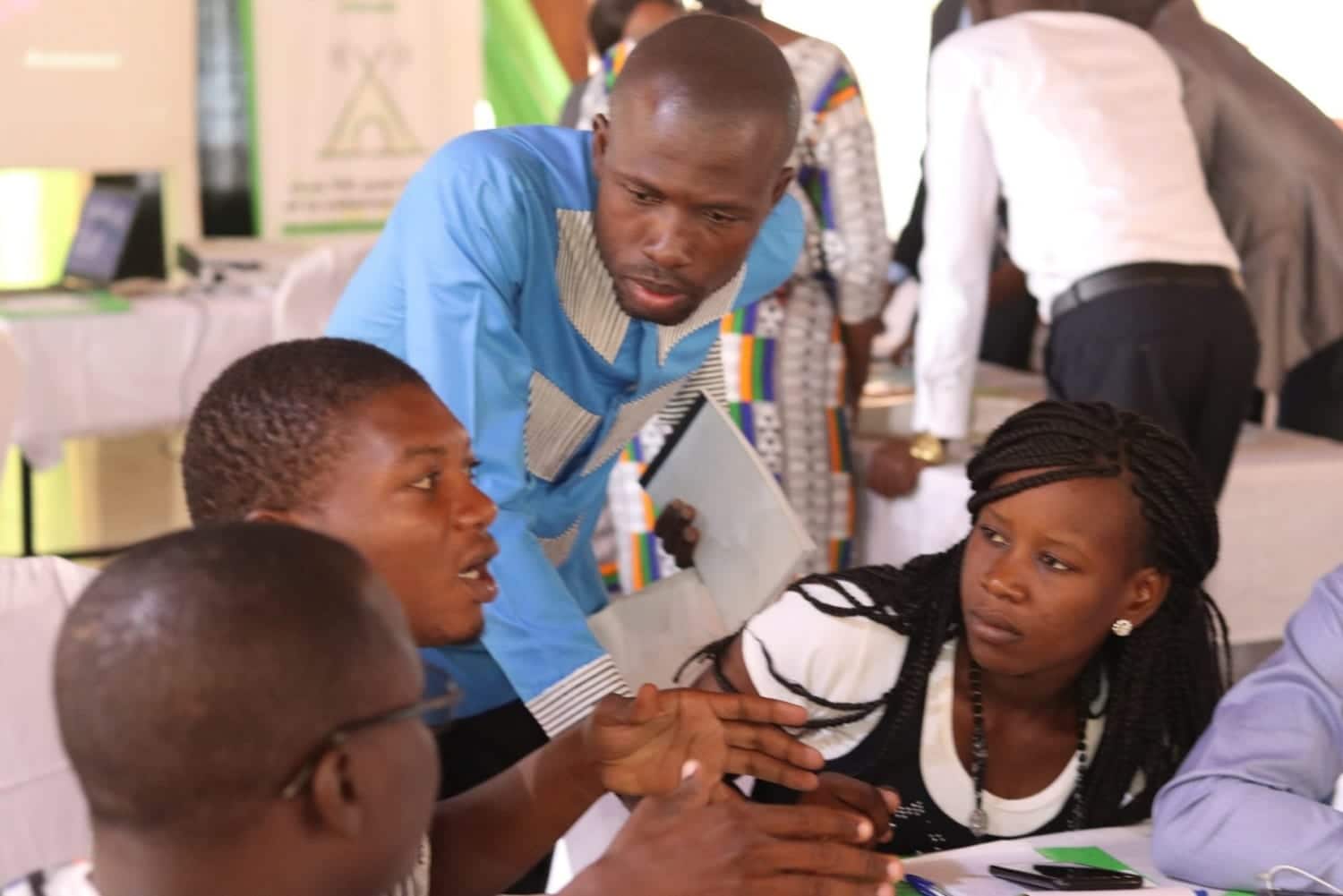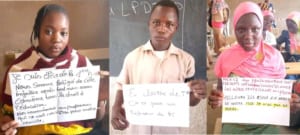

Youth mobilize support for resources to reopen schools and overwhelm threats from extremist groups
In Burkina Faso, a Tech Camp graduate trains students to advocate for more education resources
A Project of —
Voices for Peace (V4P)

Voices for Peace Success Story
One way in which EAI’s Voices for Peace (V4P) project fosters citizen-led engagement with government on countering violent extremism issues is by turning young leaders into influential voices on social media.
During our Tech Camps, selected youth learn to produce original civic-minded audio and visual content for an online audience. After the training, graduates are linked with like-minded advocates through rub-regional peace promotion networks.
One of the most active networks covers the border communities of Mali, Niger, and Burkina Faso, known as the Liptako-Gourma region. The network was founded after a regional Tech Camp in Bamako in July 2019, which hosted 30 young people who previously excelled in national-level Tech Camps.
Nourroudine Konfé was one of 10 young people nominated from Burkina Faso to participate in the Regional Tech Camp. He was originally selected for a Tech Camp in Djibo for his commitment to local civic engagement, although he was scarcely using social media. Now, Nourroudine is fluent in social media tools such as Facebook live, which has increased the visibility and impact of his work in his community. This year, he went to Bamako to exchange experiences, tactics, and strategies with his peers at the Regional Tech Camp.
Through the training I have received on the efficient use of social media, I have enabled children to fight for their future.
–Nourroudine, V4P Tech Camp graduate
Djibo is the epicenter of Burkina Faso’s violent extremist insurgency and therefore a very challenging place to work. Teachers in the community were afraid to open their classrooms because of direct threats and targeted assassinations from extremist groups. Nourroudine addressed the situation by creating public pressure on local and national government officials to improve security measures so that classes could recommence. Using his new skillset, he organized a social media training session in December 2019 for members of two local high school students’ associations in Djibo and nearby Soum. The session, entitled “The Use of Social Media for Civic Engagement,” taught participants how to use social media to lobby government officials with the goal of creating conditions so that teachers can return safely to school.
Since the training, Nourroudine has noticed a “real change in the way trained young people communicate on social media through clearer and more targeted messages.” Nourroudine adds, “Voice for Peace has given me a greater means of action; a voice that can carry wherever I want.”
Unfortunately, the worsening security situation in Djibo has still prevented teachers from returning to their classrooms. However, thanks to Nourroudine’s leadership and advocacy from the young people he has trained, local authorities are more communicative around the problem, and are actively seeking solutions. The local government now supports a student-led initiative to find alternative solutions, including self-organized teaching formats, while waiting for teachers to return.
